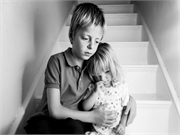Findings significant across adversity subtypes with largest effects seen for emotional abuse and neglect
MONDAY, Dec. 2, 2019 (HealthDay News) — Exposure to childhood adversity is associated with borderline personality disorder (BPD), according to a review recently published in Acta Psychiatrica Scandinavica.
Carly Porter, Ph.D., from the University of Manchester in the United Kingdom, and colleagues examined the magnitude and consistency of the associations between childhood adversity and BPD. Data were included from 97 studies that compared individuals with BPD to nonclinical and clinical controls.
The researchers found that individuals with BPD had an increased likelihood of reporting childhood adversity compared with nonclinical controls in a meta-analysis of case-control studies (odds ratio, 13.91; 95 percent confidence interval [CI], 11.11 to 17.43). When considering retrospective cohort and epidemiological studies, this effect was smaller (odds ratios, 2.59 [95 percent CI, 0.93 to 7.30] and 2.56 [95 percent CI, 1.24 to 5.30], respectively). Significant findings were seen across adversity subtypes, with the largest effects seen for emotional abuse and neglect (odds ratios, 38.11 [95 percent CI, 25.99 to 55.88] and 17.73 [95 percent CI, 13.01 to 24.17], respectively). Compared with other psychiatric groups, individuals with BPD were 3.15 times more likely to report childhood adversity (95 percent CI, 2.62 to 3.79).
“Research exploring the relationships between childhood adversity and specific features of BPD may facilitate understanding of the current overlap or comorbidity with other complex posttraumatic presentations,” the authors write.
Copyright © 2019 HealthDay. All rights reserved.








